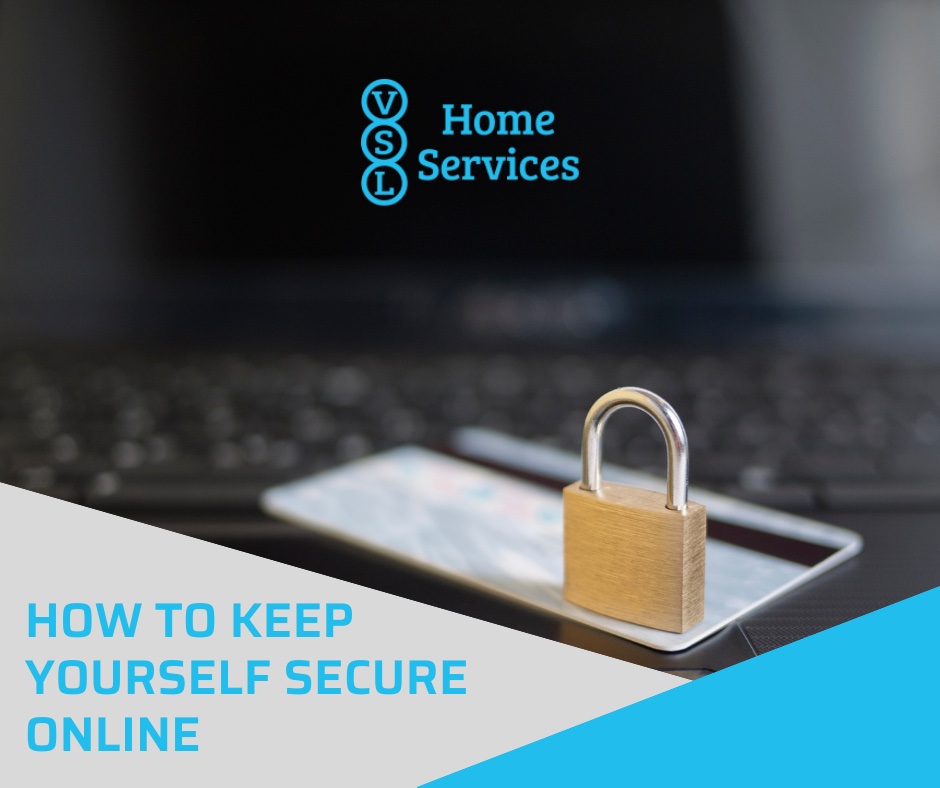
You have seen it across all of the headlines as of late, ransomware attack here and cyberattacks there; the internet can seem like a scary and dangerous place as of late. There are a plethora of vulnerabilities out there. The big corporations and government agencies make the headlines when they fall victim to a cyberattack, less publicized are how often home computers are infected by malware. It is important to keep yourself safe online, but how do you stay safe?
Let’s look into a few ways to keep yourself safe online.
Antivirus
The first step to keep yourself secure online is to install an antivirus, which is your frontline of defense. There are many different types of malware; viruses, ransomware, trojan horse, and botnet attacks, to name a few. Antivirus protects against all of these, keeping them at bay.
It is important to note that you will want to keep your antivirus updated. Computers are constantly being bombarded with new viruses. The updates for your antivirus contain the files needed to protect your computer from the new viruses as well.
Create and use a unique password for each login
It may seem like everything we do online requires login credentials these days, and all of the different passwords can be a challenge to remember. We know it can be easy to let down your guard and use the same (or similar) password for multiple accounts. The problem with this is when a hacker gets one of your login credentials, they will try to use them and password combinations on banking sites, online stores, and more. If you do not use unique passwords for every account, hackers may gain access to all of your accounts simply by hacking that one login credential.
To prevent falling into this trap, use strong, unique passwords for every account. We do not expect you to remember every password for every account you have, that is what they make password managers for. There are many good password managers available that are free. Also, there are paid password managers, which tend to have more features and functionality. Do some research and see what works best for you.
Use two-factor authentication
Passwords are not always enough. Let’s face it, you must do everything you possibly can to stay safe online. The massive increase in cybercrime over 2020 and moving forward requires stronger security. When you have the option, use two-factor authentication (2FA).
What is 2FA? 2FA is an added layer of security for logging into your account. It makes sure that whoever is attempting to log in is who they say they are. When you enter your login credentials, you will be required to enter another piece of information instead of being logged in. This second piece of information may be many different things, from a pin to a one-time password (OTP).
Pay with your smartphone/smartwatch when you can
This tip is not as well known or as obvious. We all dread the thought of opening up of credit card account and seeing erroneous charges, often amounting to a lot of money. The system that credit cards use is outdated, not keeping pace with the security features required to be secure.
There are many mobile payment apps, the more popular ones being Android Pay and Apple Pay. Many of the modern point-of-sale (POS) terminals are suited to accept this form of payment. POS terminals will indicate this with an icon that may look like a hand holding a smartphone or a representation of a radio wave.
Using mobile payments is more secure due to the payment app generating a one-use authentication code, which is only valid for the current transaction. This means that should someone hacks the information of your transaction, it will be of no use to them thanks to the one-use authentication code. Not to mention that mobile payment virtually eliminates the threat of a credit card skimmer.
Clear your cache
Clearing your cache is essential to your privacy and online security, especially if others use your computer. Your cache will give others a clear view of what you have been doing online. Your cache may also store private data required by some websites, which may give others access to sensitive or personal information. While some adware, malware, and viruses target your cache’s temporary files.
Watch out for phishing scams
This tip falls on you staying vigilant about your online security. Stay current on the latest cyberattack trends, so you are less likely to fall victim to them. Here are a few quick email tips:
- It is a red flag when they ask for personal information.
- Check the sender’s email address.
- Watch for links and attachments.
- Typos are a red flag.
- When in doubt, contact the supposed sender; their customer support will be able to tell you if the email is from them or not.
- Do not click on links you were not expecting or look suspicious.
